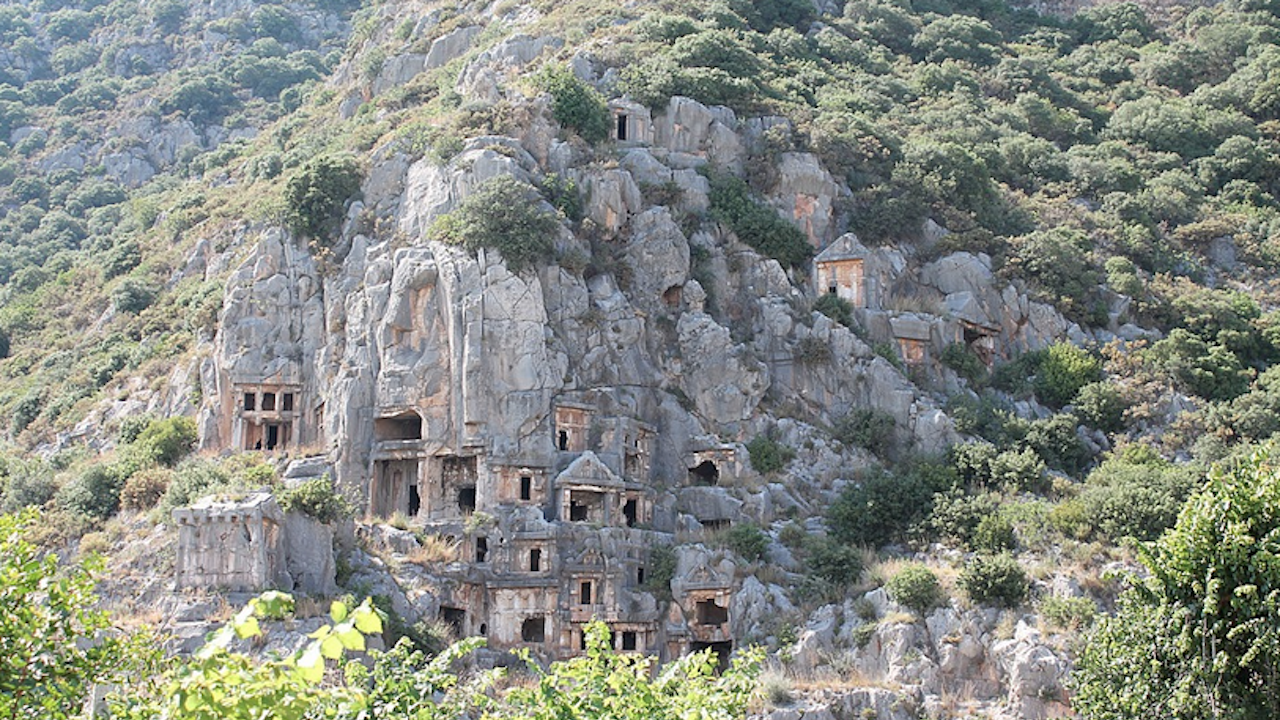A virtual laboratory will explore Late Antiquity in the Balkans. It was created as a result of the "LABedia: encyclopedia of Late Antiquity in the Balkans" project.
The presentation of his activities took place this evening in the capital, and the event was hosted by the Institute of Balkan Studies with the Center for Tracology at the BAS (IBST-BAS).
Assoc. Dr. Zlatomyra Gerdzhikova spoke about the work on the project, and Assoc. Dr. Ivo Topalilov presented the laboratory.
The project "LABedia: encyclopedia of the Late Antiquity of the Balkans" started in 2019, it is financed by the "Scientific Research" fund, the leading organization is the Institute of Balkan Studies with the Center for Tracology "Prof.
Alexander Fol" at the Bulgarian Academy of Sciences and we have partners from several faculties of the SU "St.
Kliment Ohridski" - from the Faculty of History, Theology, Classical and New Philologies.
We also have participants from the National Archaeological Institute with a museum at the BAS, noted Gerdzhikova, quoted by BTA.
NIM shows life in late antiquity
A total of 11 researchers are participating in the project, as the main scientists of the project.
The team is interdisciplinary - we have archaeologists, theologians, historians, classical philologists, art critics, said Gerdzhikova.
She noted that the idea is to bring together people who work on the period of Late Antiquity - between the 3rd - 7th centuries, and who generally do not interact with each other.
Initially, they started with a series of public lectures, and for the entire period so far they have been 35. At the beginning, they were present, and during the pandemic - remotely.
The organization of virtual lectures gave them the opportunity to invite more of their colleagues from abroad to participate, Prof. Gerdzhikova also told.
In addition, some of the Bulgarian participants delivered their lectures in English, which expanded the scope of their audience and the impact of the project beyond the borders of our country.
Four discussion colloquiums were also organized on specific topics.
These are the events with the greatest scientific impact because they contain concentrated information, Gerdzhikova said.
Among the other activities within the project are two international conferences, in which most of the participants were from abroad.
Representatives of 13 countries took part in the first forum, and in the second - from 11 countries.
The main activity of the project is the creation of the encyclopedia for the study of Late Antiquity in the Balkans.
It will be bilingual - in Bulgarian and in English.
It is open access. For the time being, the articles in Bulgarian have been uploaded, and in the coming months the parts related to the Balkan partners of IBCT-BAS should be activated as well, Prof. Gerdzhikova said.
The second goal of the project is to create a scientific network that will grow into a Center for the Study of Late Antiquity, she said.
They have partners from Turkey, Greece, the Republic of North Macedonia, Serbia, Romania, Slovenia, Austria and the USA.
Gerdzhikova added that at this stage they have not been able to find permanent partners from Albania, Montenegro and Croatia.
She expressed hope that they will be able to find such, even though the project is at an end.
Each Balkan country should have its own part of LABedia, which will be published in the relevant national language and in English, added Prof. Gerdzhikova.
After the end of the project, the work does not end, she noted, adding that they continue to develop what was supposed to be the Center for the Study of Late Antiquity, but in fact they called the Virtual Laboratory for the Study of Late Antiquity.
Thus, the scientific network that they created within the project continues to operate.
Prof. Ivo Topalilov presented the laboratory and talked about their future commitments.
He spoke about the scientific publication of the Annales Balkanici project.
The first volume is already a fact and is about the creation of the late antique world in the Balkans.
The second volume will be published by the end of the year, which will be about the presence of the Goths in this region.
Next year, the reports of the two organized international conferences should also be published in book form.
Topalilov pointed out that a third international forum is coming up.
In addition, the public lectures and discussion colloquiums will continue, as well as the two seminars - "Military Affairs and Armament in Antiquity and the Middle Ages" and "The Ancient and Late Ancient City of the Balkans".
Assoc. Topalilov noted that their idea is to publish the public lectures in book editions as well.
He pointed out that so far they have not received a refusal from foreign scientists invited to visit the country and give a public lecture here.
For the most part, foreign scientists want to come to Sofia, and not for their participation to be online, Topalilov also noted.
I hope that the initiative will be successful.
Site visits show there is interest.
I also received calls from scientists from abroad who say that they are following what is happening with LABedia, Topalilov said.
According to him, this is a good sign that the things they are doing have not gone to waste.
We are actually creating a foundation on which to build and create a community in the Balkans that would unite scientists from absolutely all Balkan countries and thus the borders that exist are not an obstacle to our joint efforts, he added.
Three of the foreign project partners were also present at the presentation today - Jelena Yarich from the Republic of North Macedonia, Alenka Cedilnik from Slovenia and Hauk Cetinkaya from Turkey.
The Balkans
